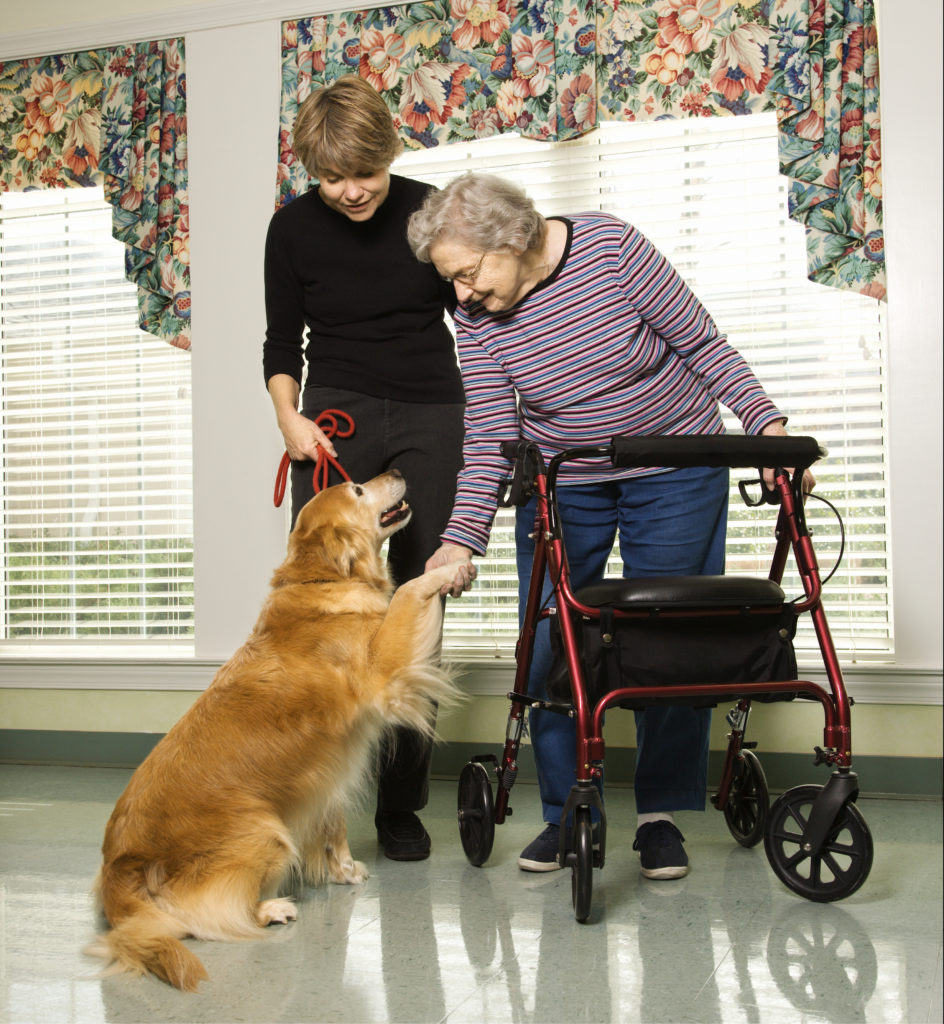Is Your Dog A Good Fit For Therapy Dog Work?
Therapy dogs are pet dogs who live with their families as companion dogs. They are trained, along with their owners to become a team who may visit with adults and children in a multitude of settings such as hospitals, retirement homes, nursing homes, schools, libraries and even disaster areas. Therapy dogs may also visit rehabilitation centers, group homes, after school activities with children or daycares. These special dogs can bring such comfort and support to the people they engage with. The benefits of spending time with dogs have been well documented and prove to offer endless positive effects to those they visit with. The companionship of a dog can bring smiles and comfort to, easing loneliness, providing support and an abundance of comfort.

Are you interested in becoming a therapy dog team with your dog? Is your dog right for therapy dog work? What makes a god therapy dog?
A good therapy dog comes is a combination of a dogs personality, or temperament, and training. First and foremost, therapy dogs have to like people, and being around people they are not familiar with. The old saying “s/he never met a stranger” is a good adage for a therapy dog want to be. Therapy dogs should be calm. Dogs who are to active, and unable to settle could become more troublesome and even present a liability. Sometime training and maturity can help settle an active canine.
Therapy dog work can be stressful as dogs are meeting with new people in new environments, often with new sounds, smells and activities. Dogs who are generally nervous and concerned may find that being a therapy dog is just too overwhelming for their comfort.
Therapy dog’s work is all about bringing comfort and support to others. Being close to people, engaging in petting and stroking is often a big part of a therapy dog’s life, so dogs who might display aggressive behaviors are not good candidates for therapy dog work as they may feel threatened by such close interactions.
Are some breeds of dogs better suited to therapy dog work? No, not really. Good therapy dogs come in all sized, breeds and mix breeds. Breed biases should not be considered when choosing to go the path of developing your dog to be a therapy dog. What matters most of all, is that your dog enjoys people and feels comfortable in new situations.
What type of training do therapy dogs need? Therapy dogs need to be obedient and well behaved. They also need to be socialized to a variety of different sight, sounds and activity, such as intercoms, wheel chairs and walkers. They have to be able to remain attentive, in control and obedient even if there is a heightened state of activity happening around them. Dogs should be able to settle when not engaged in meeting someone, sit and down on cue as well as stay for extended periods of time. They should be able to walk calmly on a loose leash and come to your attention when called. Of course a therapy dog should also have good manners. Jumping or putting their moth on a person or persons clothing is definitely not in good manners for a therapy dog.
Engaging in science-based, positive reinforcement training should be at the foundation of a therapy dog’s education. Positive reinforcement based training builds confidence, trust and an eager engagement with the world. Positive reinforcement training also build ability and the dog’s knowledge of how to succeed. Positive reinforcement training can be incorporated into any training session anywhere you are. Dogs enjoy positive reinforcement training. Training based in positive reinforcement methodology do not create fear, distress, avoidance or defensive behaviors. Positive reinforcement training methods will improve your communication with your dog. Positive reinforcement training methods support a calm, trusting, and engaged therapy dog team.
Would you like to learn more about therapy dog training for your dog? Click here.
